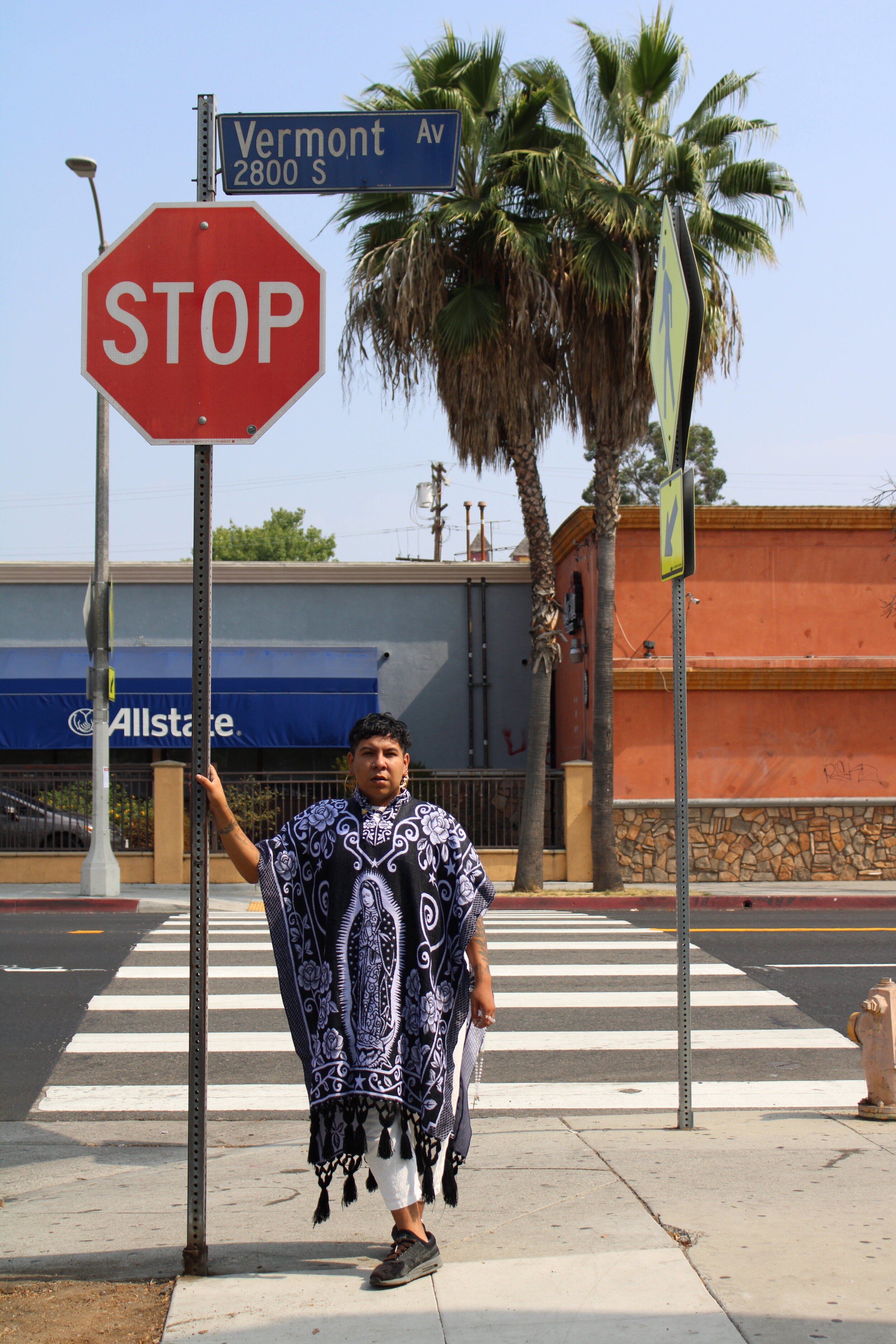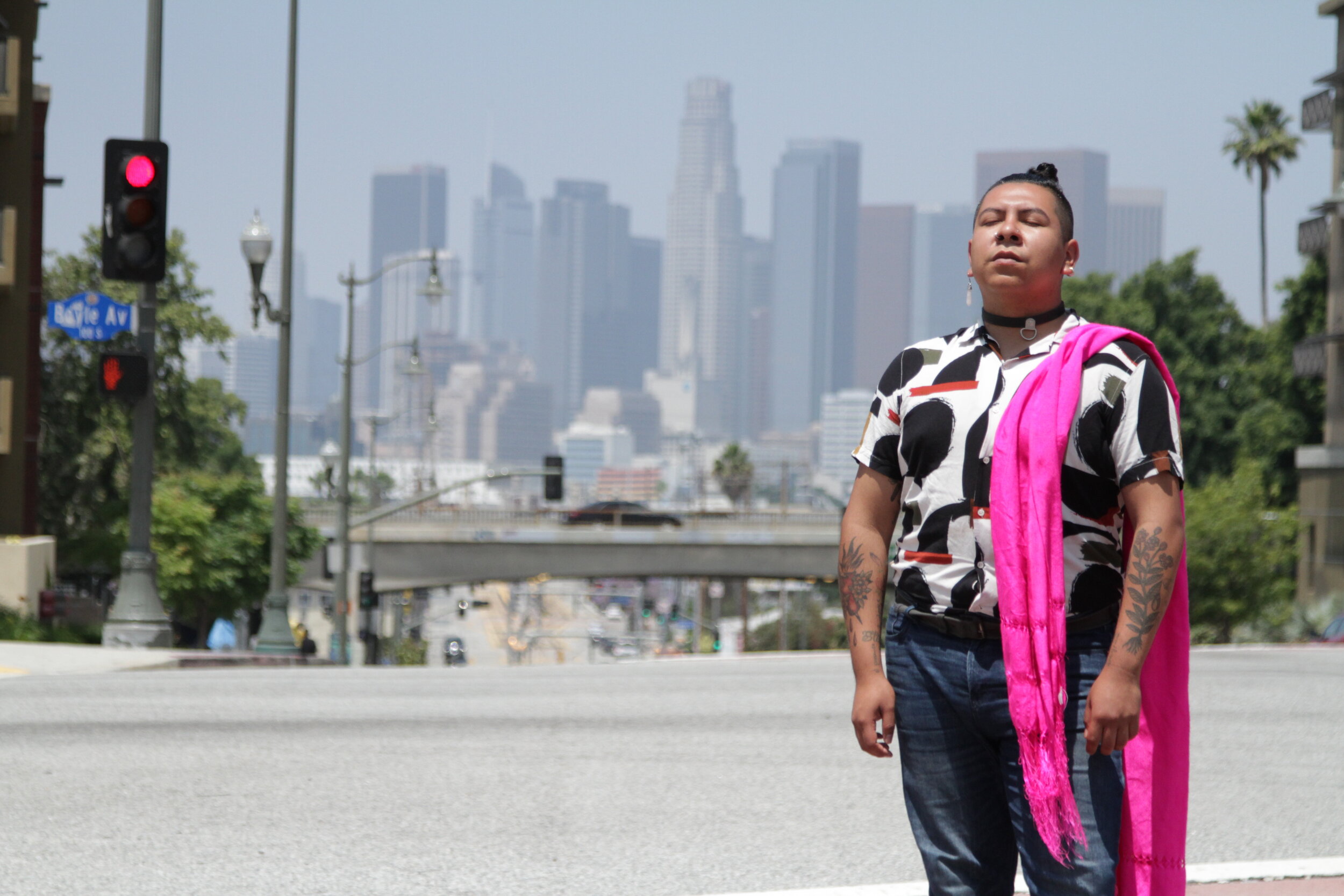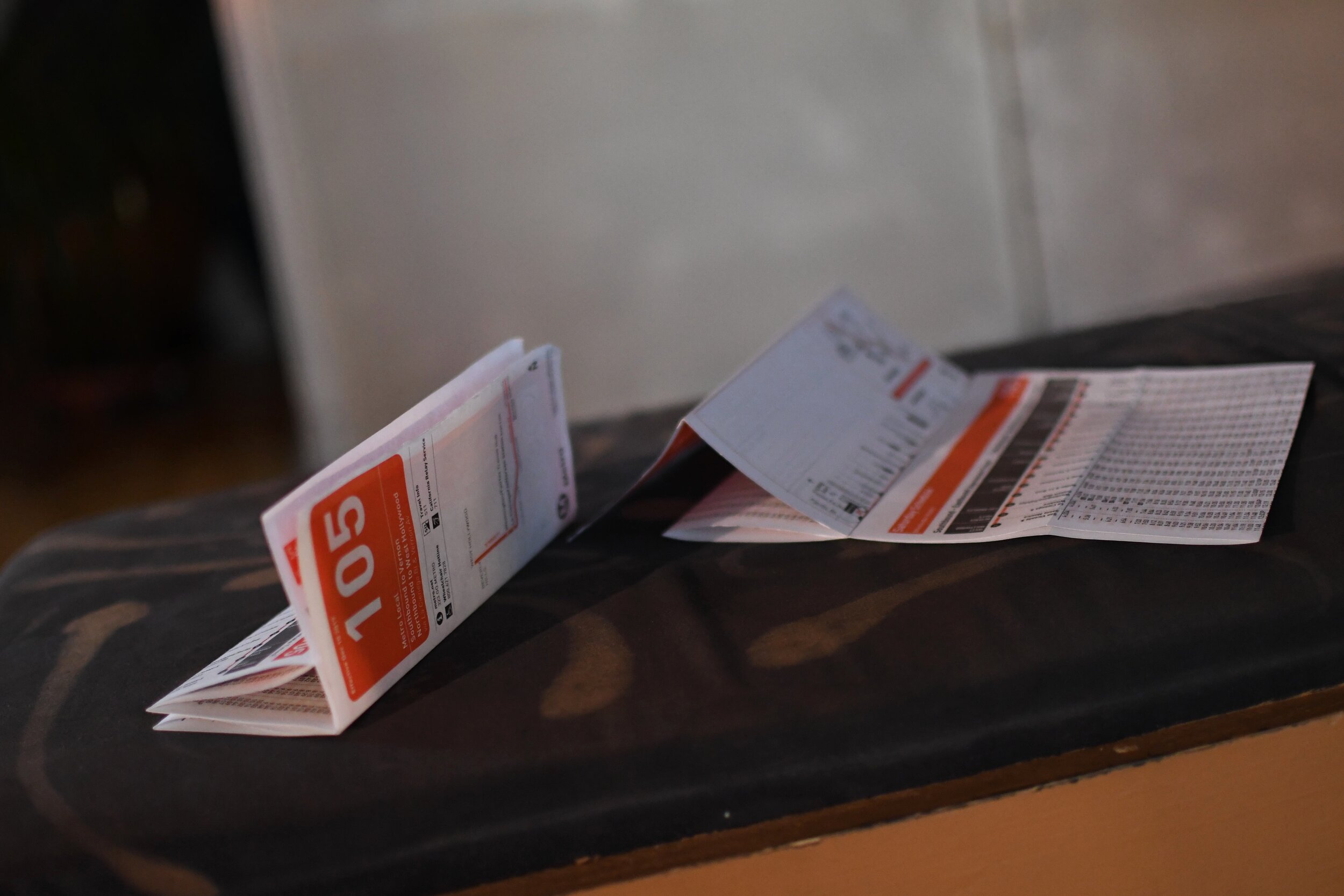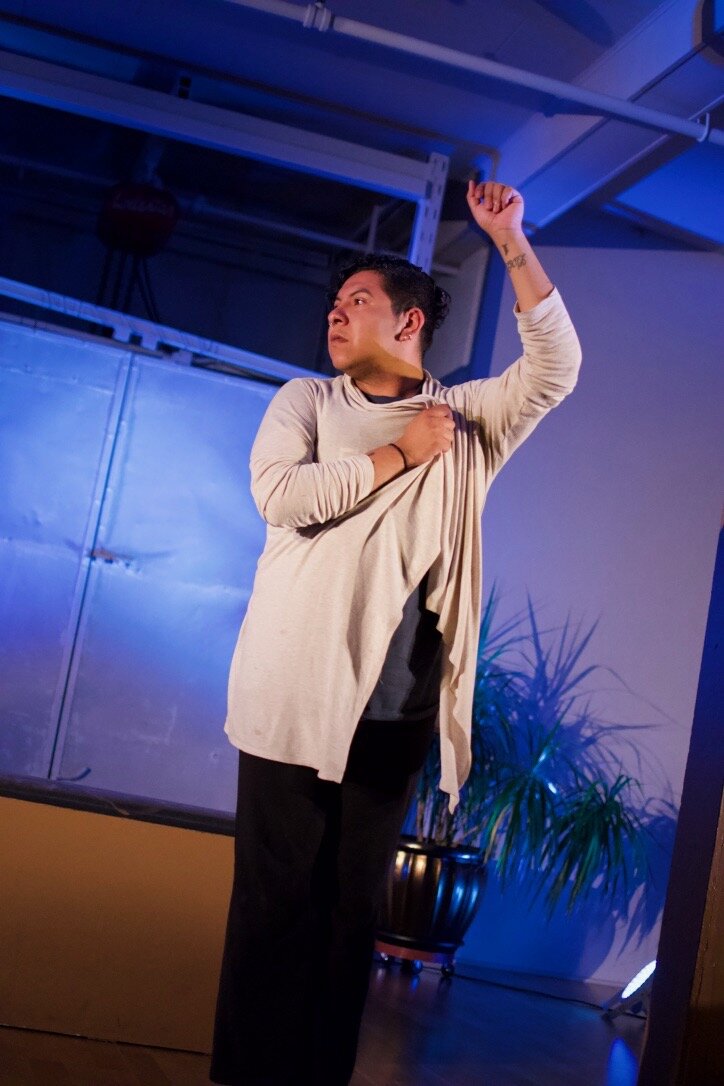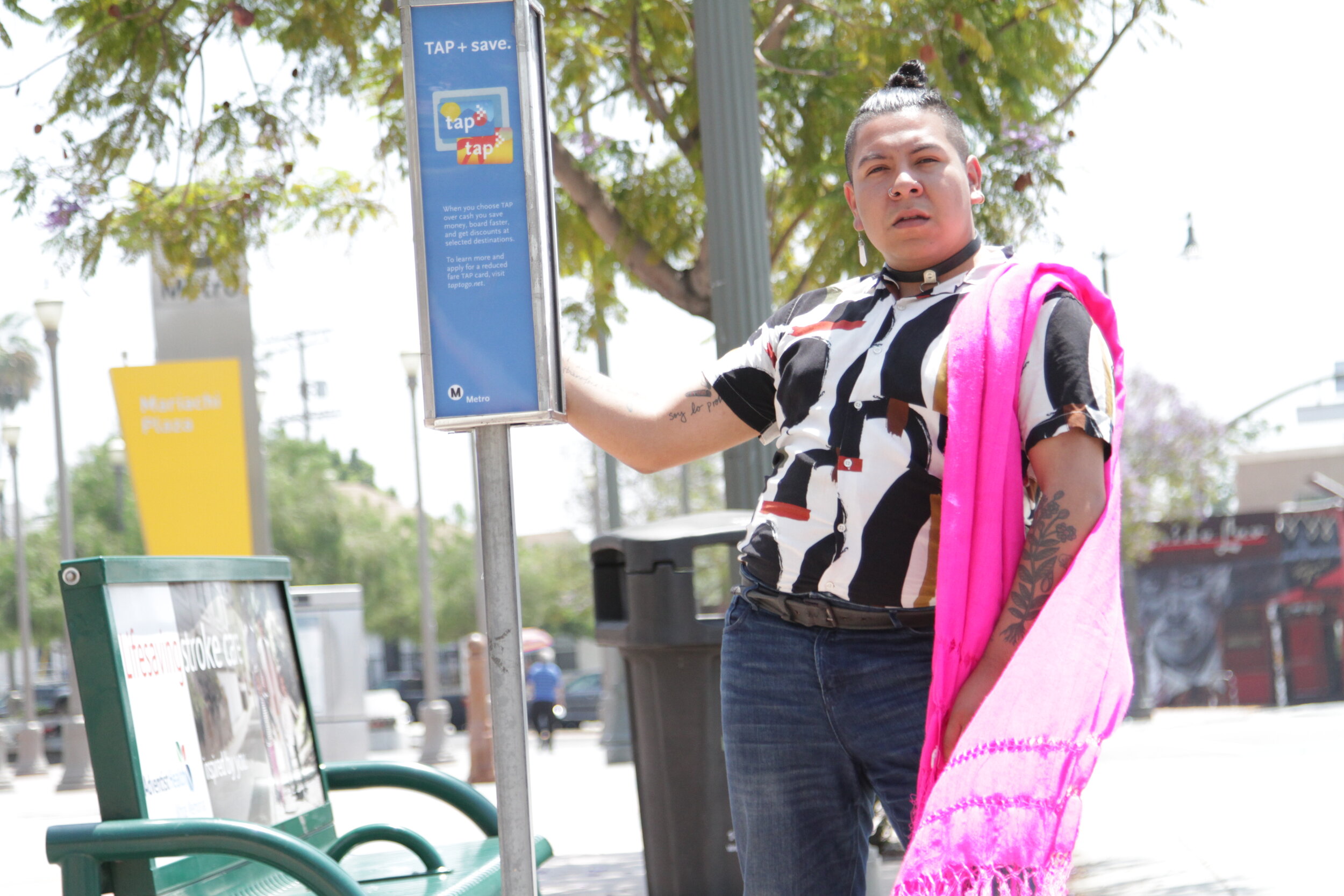Jose Richard Aviles: En Movimiento
As a Queer Brown Boi from South Central, Jose Richard Aviles’ project En Movimiento reflected on the ever-evolving narratives and experiences of LA bus riders and pedestrians along the 204 bus route of Vermont Ave in South Central Los Angeles. En Movimiento highlighted the impact that COVID-19 had on the bus and its riders, a ripple of the personal and societal transformation that the pandemic has erected globally. Through the mediums of performance, video, and dance; Jose Richard honored the phantom of their life as a bus rider and the pre-pandemic relationship between bus and rider.
Celebrating El Dia De Los Santos, a Catholic Indigenous celebration of the ancestors and all those who have passed, Jose Richard performed El Camino de Vermont. In partnership with Metro Art, “El Camino de Vermont” was a guerilla-style performance and procession that traces 12.2 miles of the 204 bus route that passes through South Central inspired by the Catholic pilgrimage of El Camino de Santiago. Documented and transformed into a video piece, “El Camino de Vermont” was an ode to the bus riders and pedestrians whose lives and relationships to the bus have been affected by the pandemic.
Jose Richard’s second video piece, “Tio Metro”, unfolded in front of a bus stop along the 204 bus route; transforming public space into a site of engagement through dance & performance.
Watch “El Camino de Vermont” and “Tio Metro”:
BIO
Jose Richard Aviles is a multimedia artist, Urban Planner, and Social Worker based out of Los Angeles. As a former organizer with the Bus Riders Union and current Bus Rider, Aviles is interested in the stories of the countless people that still rely on public transportation. Currently, Aviles is working on their second full evening length work, Semilla, that explores the relationship between intergenerational trauma and the memories of the built environment.
Follow Jose Richard Aviles on Instagram @soynalgona
Jose Richard Aviles' residency dialogues with“Mobility Archived”, Side Street Project's 2020 curatorial project that looks at the relationship between histories of mobility, movement, and the archive.

